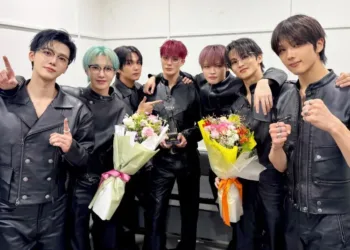The Marvel Cinematic Universe has long been a masterclass in anticipation, spectacle, and interconnected storytelling. Each new film is more than just a blockbuster—it’s a cultural event, a puzzle piece in a sprawling narrative that has captivated audiences for over a decade. So when news breaks that not one, but two of the most eagerly awaited Avengers films—Avengers: Doomsday and Avengers: Secret Wars—are being delayed, the ripple effect is felt across the globe.
For fans who have been counting down the days to these cinematic milestones, the announcement is both a test of patience and a moment to reflect on the ever-evolving nature of the MCU. As Marvel Studios recalibrates its release calendar, questions abound: What prompted the shift? How will this impact the broader Marvel timeline? And what can audiences expect when these epic stories finally arrive in theaters? In this in-depth exploration, we’ll break down the reasons behind the delays, examine the implications for the MCU’s future, and share insights into how fans and industry insiders are reacting to this seismic change.
Table of Contents
Avengers: Doomsday and Secret Wars Delayed—The Story Behind the Shift
Marvel Studios’ decision to push back the release dates for Avengers: Doomsday and Avengers: Secret Wars to December marks a significant moment in the franchise’s history. Originally slated for earlier debuts, both films are now set to anchor the holiday season, a move that has sparked both disappointment and understanding among fans. The official reason for the delay, as reported by Variety, centers on a combination of production challenges, ongoing industry shifts, and Marvel’s commitment to delivering films that meet the high expectations set by previous Avengers installments.

The production landscape for blockbuster films has grown increasingly complex in recent years. From the lingering effects of industry strikes to the logistical hurdles of coordinating massive ensemble casts, Marvel’s latest projects have faced a unique set of challenges. Insiders point to the need for additional time to perfect visual effects, refine scripts, and ensure that the interconnected storylines align seamlessly with the broader MCU narrative. Rather than rushing to meet an arbitrary deadline, Marvel Studios has chosen to prioritize quality, aiming to deliver cinematic experiences that will stand the test of time.
This strategic shift to December is also a calculated move from a box office perspective. The holiday season has historically been a lucrative window for major releases, offering families and fans the opportunity to experience blockbuster films together. By positioning Avengers: Doomsday and Avengers: Secret Wars as year-end events, Marvel is betting on heightened anticipation and record-breaking attendance, even if it means asking audiences to wait a little longer.
What the Delays Mean for the Marvel Cinematic Universe
The postponement of these two Avengers films has far-reaching implications for the MCU’s meticulously crafted timeline. With Doomsday and Secret Wars serving as pivotal chapters in the ongoing saga, their delay necessitates adjustments across the entire slate of upcoming Marvel projects. Spin-offs, sequels, and Disney+ series that tie into the events of these films may also see their release dates shift, as Marvel Studios works to maintain narrative cohesion and maximize audience engagement.
For fans, the delay is a double-edged sword. On one hand, the wait for new Avengers content is extended, prolonging the suspense and speculation that have become hallmarks of the MCU experience. On the other, the extra time offers the creative team an opportunity to elevate the films to new heights, ensuring that every detail—from character arcs to visual effects—meets the gold standard set by previous entries. Industry analysts suggest that this move could ultimately benefit the franchise, allowing for more thoughtful storytelling and a more satisfying payoff when the films finally hit theaters.
The delay also underscores Marvel’s willingness to adapt in the face of changing industry dynamics. As the entertainment landscape continues to evolve, with streaming platforms and global markets playing an ever-larger role, the studio’s flexibility and commitment to quality remain key to its enduring success. By taking the time to get these films right, Marvel is signaling to fans that the future of the MCU is in capable hands.

Avengers Doomsday & Secret Wars Delay—Key Details
| Film Title | Original Release Date | New Release Date (December) | Reason for Delay | Impact on MCU Timeline |
|---|---|---|---|---|
| Avengers: Doomsday | Earlier (TBA) | December (TBA) | Production challenges, quality control | Shifts in related MCU projects |
| Avengers: Secret Wars | Earlier (TBA) | December (TBA) | Script refinement, VFX, scheduling | Adjustments to spin-offs and sequels |
Euphoria Season 3 Sydney Sweeney Update: What Fans Can Expect from Cassie’s Next Chapter
FAQs
Q1: Why were Avengers: Doomsday and Avengers: Secret Wars delayed to December?
The delays are attributed to a combination of production challenges, the need for additional time to perfect visual effects and scripts, and Marvel Studios’ commitment to delivering films that meet the high standards of the franchise. The shift also positions the films for maximum box office impact during the holiday season.
Q2: How will the delays affect other Marvel projects and the overall MCU timeline?
With these two major films serving as cornerstones of the MCU’s next phase, their postponement will likely result in adjusted release dates for related spin-offs, sequels, and Disney+ series. Marvel Studios is working to ensure that the interconnected narrative remains cohesive and engaging for fans.








